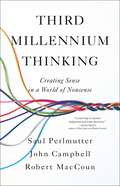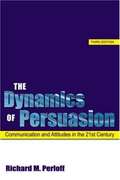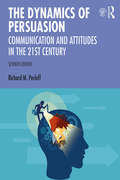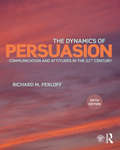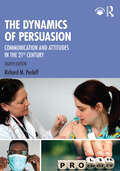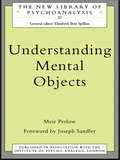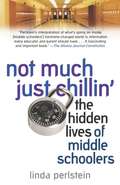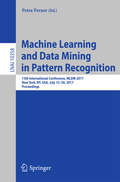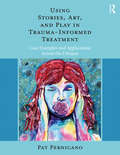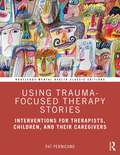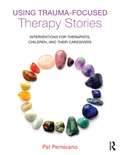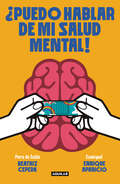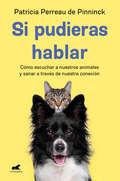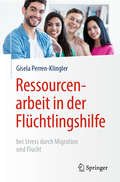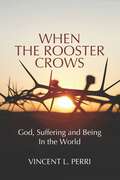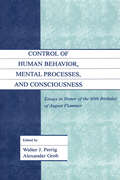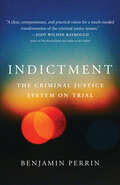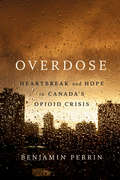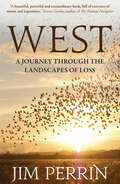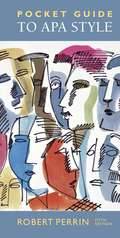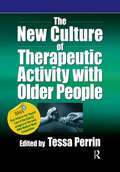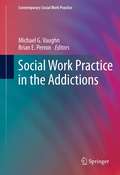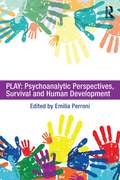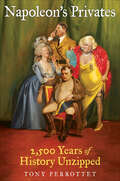- Table View
- List View
Third Millennium Thinking: Creating Sense in a World of Nonsense
by Saul Perlmutter John Campbell Robert MacCounBased on a wildly popular UC Berkeley course, how to use scientists&’ tricks of the trade to make the best decisions and solve the hardest problems in age of uncertainty and overwhelming information. In our deluge of information, it&’s getting harder and harder to distinguish the revelatory from the contradictory. How do we make health decisions in the face of conflicting medical advice? Does the research cited in that article even show what the authors claim? How can we navigate the next Thanksgiving discussion with our in-laws, who follow completely different experts on the topic of climate change? In Third Millennium Thinking, a physicist, a psychologist, and a philosopher introduce readers to the tools and frameworks that scientists have developed to keep from fooling themselves, to understand the world, and to make decisions. We can all borrow these trust-building techniques to tackle problems both big and small. Readers will learn: How to achieve a ground-level understanding of the facts of the modern world How to chart a course through a profusion of possibilities How to work together to take on the challenges we face today And much more Using provocative thought exercises, jargon-free language, and vivid illustrations drawn from history, daily life, and scientists&’ insider stories, Third Millennium Thinking offers a novel approach for readers to make sense of the nonsense.
The Dynamics of Persuasion: Communication and Attitudes in the 21st Century
by Richard M. PerloffA textbook revised from the 1993 first edition not only to incorporate events and changes in the technology of communication, but also to focus more on the role theory and research play in persuasion in American society, and the ethical implications of ideas and research. Annotation (c)2003 Book News, Inc., Portland, OR (booknews.com)
The Dynamics of Persuasion: Communication and Attitudes in the Twenty-First Century (Routledge Communication Series)
by Richard M. PerloffNow in its seventh edition, this essential text continues to provide students with a comprehensive yet accessible overview of the study and practice of persuasive communication. Attuned to the swift changes in the world of persuasion in the twenty-first century, this book covers how theories and research illuminate and adapt to our present digital era, with continued attention to ethical implications and today’s big topics. This new edition features updated definitions of key terms in the field as they relate to present-day practice; an integration of persuasion theories and the ubiquity of online influence; new examples and cases to illustrate persuasive communication’s approach to health campaigns, attitudes, communicator appeals, dissonance, and ethics; and a thorough reflection of the most current scholarship in the field. The Dynamics of Persuasion, Seventh Edition provides a solid foundation for undergraduate students in communication studies and psychology to grasp the key concepts and practices of persuasive communication today. The book is complimented by online resources for both instructors and students, including an instructor’s manual, lecture slides, sample test questions, and links to relevant articles and videos illustrating concepts presented in the text. Please visit www.routledge.com/cw/perloff.
The Dynamics of Persuasion: Communication and Attitudes in the Twenty-First Century (Routledge Communication Series)
by Richard M. PerloffThe Dynamics of Persuasion has been a staple resource for teaching persuasion for nearly two decades. Author Richard M. Perloff speaks to students in a style that is engaging and informational, explaining key theories and research as well as providing timely and relevant examples. The companion website includes materials for both students and instructors, expanding the pedagogical utilities and facilitating adoptions. The sixth edition includes: updated theoretical and applied research in a variety of areas, including framing, inoculation, and self-affirmation; new studies of health campaigns; expanded coverage of social media marketing; enhanced discussion of the Elaboration Likelihood Model in light of continued research and new applications to everyday persuasion. The fundamentals of the book – emphasis on theory, clear-cut explanation of findings, in-depth discussion of persuasion processes and effects, and easy-to-follow real-world applications – continue in the sixth edition.
The Dynamics of Persuasion: Communication and Attitudes in the 21st Century (Routledge Communication Series)
by Richard M. PerloffThe eighth edition of The Dynamics of Persuasion again guides readers in understanding the power and limits of persuasion in contemporary society. This edition continues its accessible and detailed illustration of the theoretical underpinnings of persuasive communication through contemporary and relevant examples of persuasion in action. It features coverage of new scholarship on misinformation, health communication, and persuasion effects, including careful attention to persuasion’s role in the Covid-19 pandemic. Important issues such as racial injustice, climate change, and barriers to persuading the politically and psychologically polarized also receive a fresh examination. The book brings together classic terms and approaches from earlier editions with new global developments to help readers adopt a more thoughtful perspective on persuasion. The eighth edition is an essential resource for courses in persuasion at the undergraduate and graduate levels within communication studies, psychology, and business programs. Online resources also accompany the text: an Instructor Manual that contains sample syllabi, key terms, chapter outlines, sample discussion questions, and links to relevant news articles and other online resources such as videos; Lecture Slides; and a Testbank. Please visit: www.routledge.com/9781032268187.
Understanding Mental Objects (The New Library of Psychoanalysis #Vol. 22)
by Meir PerlowThe ways in which an individual (the subject) relates to and perceives other people (his or her 'objects') has always been a preoccupation of psychoanalysis and in recent years a plethora of concepts has grown up in the literature. In this ground-breaking study, Meir Perlow sets out to clarify the changing meanings of the different concepts from context to context, discussing in depth the theoretical issues underlying them. The book begins with an historical survey of how mental objects have been understood in the various 'schools' of psychoanalysis as they have developed. These include Freud and his associates, the object-relations approaches of Klein, Fairbairn and Bion, orientations derived from ego psychology such as those of Schafer and Kernberg, and the self orientation of Winnicott and Kohut. In Part Two the author discusses the conceptual and clinical issues involved in the major differences between the concepts. Finally, in Part Three he delineates three basic meanings of the concepts of mental objects as they have emerged in the literature and shows how they are related to ongoing issues in contemporary psychoanalysis. This long overdue clarification of a complex area, with its wide ranging and imaginative grasp of the different theories about objects, will be an invaluable reference for all psychoanalysts and psychologists.
The Gestalt Approach, and Eye Witness to Therapy
by Fritz PerlsThe Gestalt Approach is "an exploration of a somewhat new approach to the entire subject of human behavior -- both in its actuality and its potentiality." Eye Witness contains film transcripts that Perls believed had significant teaching value.
Not Much Just Chillin': The Hidden Lives of Middle Schoolers
by Linda PerlsteinSuddenly they go from striving for A's to barely passing, from fretting about cooties to obsessing for hours about crushes. Former chatterboxes answer in monosyllables; freethinkers mimic everything from clothes to opinions. Their bodies and psyches morph through the most radical changes since infancy. They are kids in the middle-school years, the age every adult remembers well enough to dread. Here at last is an up-to-date anthropology of this critically formative period. Prize-winning education reporter Linda Perlstein spent a year immersed in the lunchroom, classrooms, hearts, and minds of a group of suburban Maryland middle schoolers and emerged with this pathbreaking account. Perlstein reveals what's really going on under kids' don't-touch-me facade while they grapple with schoolwork, puberty, romance, and identity. A must-read for parents and educators, Not Much Just Chillin' offers a trail map to the baffling no-man's-land between child and teen.
Machine Learning and Data Mining in Pattern Recognition
by Petra PernerTheInternationalConferenceonMachineLearningandDataMining(MLDM)is the third meeting in a series of biennial events, which started in 1999, organized by the Institute of Computer Vision and Applied Computer Sciences (IBaI) in Leipzig. MLDM began as a workshop and is now a conference, and has brought the topic of machine learning and data mining to the attention of the research community. Seventy-?ve papers were submitted to the conference this year. The program committeeworkedhardtoselectthemostprogressiveresearchinafairandc- petent review process which led to the acceptance of 33 papers for presentation at the conference. The 33 papers in these proceedings cover a wide variety of topics related to machine learning and data mining. The two invited talks deal with learning in case-based reasoning and with mining for structural data. The contributed papers can be grouped into nine areas: support vector machines; pattern dis- very; decision trees; clustering; classi?cation and retrieval; case-based reasoning; Bayesian models and methods; association rules; and applications. We would like to express our appreciation to the reviewers for their precise andhighlyprofessionalwork. WearegratefultotheGermanScienceFoundation for its support of the Eastern European researchers. We appreciate the help and understanding of the editorial sta? at Springer Verlag, and in particular Alfred Hofmann,whosupportedthepublicationoftheseproceedingsintheLNAIseries. Last, but not least, we wish to thank all the speakers and participants who contributed to the success of the conference.
Using Stories, Art, and Play in Trauma-Informed Treatment: Case Examples and Applications Across the Lifespan
by Pat PernicanoThis book shows new and experienced therapists how to use meaningful therapeutic material in art, stories and play to facilitate shifts in outlook and behavior. Using a wide variety of case studies, Dr. Pernicano lays out a framework for problem clarification, conceptualization, trauma-informed intervention, and positive therapeutic outcome with clients across the lifespan. Case examples include working with clients suffering from dissociation, depression, anxiety, mood dysregulation, adjustment to life change, grief and loss, and/or panic attacks. Replete with client-generated illustrations as well as practical tips and strategies, Using, Art, Stories, and Play in Trauma-Informed Treatment teaches therapists how to think conceptually, plan systemically and intervene flexibly to improve treatment outcomes for diverse clients.
Using Trauma-Focused Therapy Stories: Interventions for Therapists, Children, and Their Caregivers (Routledge Mental Health Classic Editions)
by Pat PernicanoUsing Trauma-Focused Therapy Stories is a groundbreaking treatment resource for trauma-informed therapists who work with abused and neglected children ages nine years and older as well as their caregivers. The classic edition includes a new preface from the author reflecting on changes in the field since the book’s initial publication. The therapy stories are perfect accompaniments to evidence-based treatment approaches and provide the foundation for psychoeducation and intervention with the older elementary-aged child or early pre-teen. Therapists will also benefit from the inclusion of thorough guides for children and caregivers, which illustrate trauma and developmental concepts in easy-to-understand terms. The psychoeducational material in the guides, written at a third- to fourth-grade reading level, may be used within any trauma-informed therapy model in the therapy office or sent-home for follow-up. Each therapy story illustrates trauma concepts, guides trauma narrative and cognitive restructuring work, and illuminates caregiver blind spots; the caregiver stories target issues that often become barriers to family trauma recovery. No therapist who works with young trauma survivors will want to be without this book, and school-based professionals, social workers, psychologists and others committed to working with traumatized children will find the book chock-full of game-changing ideas for their practice.
Using Trauma-Focused Therapy Stories: Interventions for Therapists, Children, and Their Caregivers
by Pat PernicanoUsing Trauma-Focused Therapy Stories is a groundbreaking treatment resource for trauma-informed therapists who work with abused and neglected children ages nine years and older as well as their caregivers. The therapy stories are perfect accompaniments to evidence-based treatment approaches and provide the foundation for psychoeducation and intervention with the older elementary-aged child or early pre-teen. Therapists will also benefit from the inclusion of thorough guides for children and caregivers, which illustrate trauma and developmental concepts in easy-to-understand terms. The psychoeducational material in the guides, written at a third- to fourth-grade reading level, may be used within any trauma-informed therapy model in the therapy office or sent-home for follow-up. Each therapy story illustrates trauma concepts, guides trauma narrative and cognitive restructuring work, and illuminates caregiver blind spots; the caregiver stories target issues that often become barriers to family trauma recovery. No therapist who works with young trauma survivors will want to be without this book, and school-based professionals, social workers, psychologists and others committed to working with traumatized children will find the book chock-full of game-changing ideas for their practice.
¿Puedo hablar de mi salud mental!
by Perra de Satán EsnorquelDos personas cucú te explican que ir al psicólogo no es ninguna locura. Desde su exitoso pódcast, ¿Puedo hablar!, Enrique Aparicio (Esnórquel) y Beatriz Cepeda (Perra de Satán) rompen tabúes y tratan con naturalidad cuestiones como la ansiedad, la depresión, los trastornos de la conducta alimentaria o la ideación suicida. El libro ¿Puedo hablar de mi salud mental! es el puente que quieren tender a todas las personas que intuyen que hay algo en su vida que falla, pero no se atreven a pedir ayuda. Su ejemplo, el de dos personas para las que la terapia ha sido fundamental, puede servir de impulso para quienes saben que deben arreglar algo en su cabeza, aunque no sepan bien lo que es. «Durante mucho tiempo creí que el sufrimiento era intrínseco a la vida, una consecuencia natural de hacerse mayor. En terapia empecé a deshacer el precario castillo de naipes sobre el que había construido mi visión del mundo: descubrí que ser gay y gordo no solo eran dos simpáticas circunstancias, sino partes de mi identidad que me habían expuesto a una serie de violencias que me condicionaban. La ayuda profesional me dado herramientas fundamentales. Por eso quiero que, si crees que la necesitas, acudas a ella cuanto antes». Enrique Aparicio, Esnórquel «Cuando empecé a engordar mi vida cambió por completo. Pasé de ser una niña sin problemas a una con un problema muy gordo. Nuestra sociedad hace creer a las niñas que engordar es algo muy grave contra lo que deben luchar. Cuando iba al médico y me quejaba de los nervios, ya que no sabía lo que era la ansiedad, le explicaba que sufría ataques, dolores de cabeza muy frecuentes y otros síntomas. La única respuesta que recibía era: Tienes que adelgazar, haz deporte y come menos. Acabé desarrollando un trastorno de la conducta alimentaria. Si he contado mi historia y he escrito este libro es para ponérselo más fácil a otras personas». Beatriz Cepeda, Perra de Satán
Si pudieras hablar: Cómo escuchar a nuestros animales y sanar a través de nuestra conexión
by Patricia Perreau de PinninckMejora la relación con tu mascota y aprende a fortalecer vuestro vínculo único. Aunque no seamos conscientes de ello, los animales nos hablan todo el tiempo. Usan para ello distintos tipos de comunicación, entre las que está la comunicación animal, una capacidad innata en todo ser humano basada en un lenguaje común entre especies. A través de ella, les damos la oportunidad de ser escuchados y de expresar todo lo que necesitan para su bienestar. La comunicadora animal Patricia Perreau de Pinninck nos enseña en este libro a reforzar nuestro nexo a niveles más profundos. De este modo, conectamos también con nuestra propia esencia, con nuestra propia animalidad y con nuestro corazón. Aprendemos a relacionarnos con nuestros animales y con nosotros mismos desde otro lugar. Así, evolucionamos y trabajamos conjuntamente en nuestro crecimiento personal, mejorando nuestra convivencia, y descubrimos que la sanación de nuestros animales también nos sana a nosotros.
Ressourcenarbeit in der Flüchtlingshilfe: bei Stress durch Migration und Flucht
by Gisela Perren-KlinglerErzwungene Migration und Flucht bedeuten oft eine große Verunsicherung oder sogar Traumatisierung der Betroffenen. Nach Ankunft im Gastland gilt es, die disruptiven Erfahrungen zu bewältigen, um eine gute Integration und möglichst selbständiges Leben aufbauen oder nach Rückkehr ins Heimatland an das frühere Leben anknüpfen zu können. Die hier dargestellten Vorgehensweisen basieren auf der Grundannahme, dass Menschen über ausreichende Ressourcen verfügen, um auch nach potenziell traumatischen Erlebnissen gut weiterzuleben und zu wachsen; es gilt, diese spezifischen Ressourcen wiederzuentdecken, zu nutzen und zu stärken. Das Buch bietet einfach aufbereitetes Grundlagenwissen rund um die Themen exzessiver Stress und seine Konsequenzen, Trauma und Verlusterlebnisse. Zahlreiche einfache Strategien und Techniken werden aufgezeigt, wie betroffene Menschen unter Anleitung Ressourcen aktivieren können, um diese Herausforderungen zu meistern. Das Buch richtet sich an alle Berufsgruppen, die im psychosozialen Dienst in der Flüchtlingshilfe aktiv sind. Es kann sogar dazu benützt werden, um mit Flüchtlingen zusammen eine Ausbildung als Mediatoren und Mediatorinnen für ihre Landsleute in die Wege zu leiten.
When The Rooster Crows: God, Suffering and Being In the World
by Vincent L. PerriThis book closely examines our commonly held beliefs about human suffering, and offers unique insights into God's role in why we suffer. Dr. Perri critically examines what it means to be human from a Judeo-Christian perspective, and extrapolate
Control of Human Behavior, Mental Processes, and Consciousness: Essays in Honor of the 60th Birthday of August Flammer
by Walter J. Perrig Alexander GrobIn this book, an international group of leading scientists present perspectives on the control of human behavior, awareness, consciousness, and the meaning and function of perceived control or self-efficacy in people's lives. The book breaks down the barriers between subdisciplines, and thus constitutes an occasion to reflect on various facets of control in human life. Each expert reviews his or her field through the lens of perceived control and shows how these insights can be applied in practice.
Indictment: The Criminal Justice System on Trial
by Benjamin PerrinBased on first-hand interviews with survivors, people who have committed offences, and others on the frontlines, Indictment puts the Canadian criminal justice system on trial and proposes a bold new vision of transformative justice. #MeToo. Black Lives Matter. Decriminalize Drugs. No More Stolen Sisters. Stop Stranger Attacks. Do we need more cops or to defund the police? Harm reduction or treatment? Tougher sentences or prison abolition? The debate about Canada’s criminal justice system has rarely been so polarized – or so in need of fresh ideas. Indictment brings the heartrending and captivating stories of survivors and people who have committed offences to the forefront to help us understand why the criminal justice system is facing such an existential crisis. Benjamin Perrin draws on his expertise as a lawyer, former top criminal justice advisor to the prime minister, and law clerk at the Supreme Court of Canada to investigate the criminal justice system itself. Indictment critiques the system from a trauma-informed perspective, examining its treatment of victims of crime, Indigenous people and Black Canadians, people with substance use and mental health disorders, and people experiencing homelessness, poverty, and unemployment. Perrin also shares insights from others on the frontlines, including prosecutors and defence lawyers, police chiefs, Indigenous leaders, victim support workers, corrections officers, public health experts, gang outreach workers, prisoner and victims’ rights advocates, criminologists, psychologists, and leading trauma experts. Bringing forward the voices of marginalized people, along with their stories of survival and resilience, Indictment shows that a better way is possible.
Overdose: Heartbreak and Hope in Canada's Opioid Crisis
by Benjamin Perrin&“Overdose is a necessary and searching investigation into a devastating epidemic that should never have happened. Benjamin Perrin painstakingly shows that it need not continue if we, as a society, heed the evidence.&”—Gabor Maté M.D., author of In The Realm of Hungry Ghosts: Close Encounters With AddictionAn astonishing and powerful look at the ongoing opioid crisis North America is in the middle of a health emergency. Life expectancies are declining. Someone is dying every two hours in Canada from illicit drug overdose. Fentanyl has become a looming presence—an opioid more powerful, pervasive, and deadly than any previous street drug. The victims are many—and often not whom we might expect. They include the poor and forgotten but also our neighbours: professionals, students, and parents. Despite the thousands of deaths, these victims have remained largely invisible. But not anymore. Benjamin Perrin, a law and policy expert, shines a light in this darkest of corners—and his findings challenge many assumptions about the crisis. Why do people use drugs despite the risk of overdosing? Can we crack down on the fentanyl supply? Do supervised consumption sites and providing &“safe drugs&” enable the problem? Which treatments work? Would decriminalizing all drugs help or do further harm? In this urgent and humane look at a devastating epidemic, Perrin draws on behind-the-scenes interviews with those on the frontlines, including undercover police officers, intelligence analysts, border agents, prosecutors, healthcare professionals, Indigenous organizations, activists, and people who use drugs. Not only does he unveil the many complexities of this situation, but he also offers a new way forward—one that may save thousands of lives.
West: A Journey Through the Landscapes of Loss
by Jim PerrinWest tells the story of Jim Perrin's life against the lives and deaths of his cherished wife and son, and the landscapes through which they traveled together. It is a complex and sensual love story, a celebration of the beauty and redemptive power of wild nature, and an extraordinary account of one man's journey towards the acceptance of devastating personal loss.
Pocket Guide To APA Style
by Robert PerrinThe POCKET GUIDE TO APA STYLE, 5E is an essential tool for writing research papers across the disciplines. Concise and thorough, the POCKET GUIDE offers straightforward explanations, annotated examples, and margin notes designed to help writers produce properly documented papers in the latest APA style. Not only less expensive and easier to use than the APA Manual, the POCKET GUIDE also includes extensive coverage of electronic sources, preparing writers to evaluate and use Internet references correctly in their research.
The New Culture of Therapeutic Activity with Older People (Speechmark Editions)
by Tessa PerrinOnce viewed as entertainment, activity provision is increasingly being seen as of therapeutic value and an integral part of quality care practice. This change has been so rapid and far-reaching that many staff teams have been left behind, attempting to address new culture requirements with old culture knowledge. This book clarifies and illuminates the changes that have been taking place in the field of activity provision over recent years, and offers a guideline to those who are endeavouring to catch up. The contents include: the difference between old culture and new culture thinking and practice; the new culture from the perspective of the politician, the manager, the care assistant, the activity provider, the researcher, the trainer, the community worker and the activity charity. Between them, the contributors bring a breadth of experience of the changing culture that spans more than three decades. The contributors include: Tessa Perrin; Rosemary Hurtley; Keena Millar Sylvie Silver; Paul Smith; Hazel May; Charlie Murphy; Vivienne Ratcliffe; Kenneth Hawes; Helen Crumpton; Carline Ryder-Jones, Wendy Ferguson Rebecca Colledge; Richard Mepham; Sally Knocker; Simon Labbett. This is a vital resource for all staff and management of care settings for older people.
Social Work Practice in the Addictions
by Brian E. Perron Michael G. VaughnSocial workers represent the largest body of addiction and mental health service providers, and there is a consistent need for up-to-date information. Social Work Practice in the Addictions is a comprehensive evidence-based volume. Contributing authors of this volume have been carefully selected to ensure representation of the leading social work addiction researchers. Additionally, researchers from other allied fields, including psychiatry, psychology, and public health, will also be involved to ensure a strong interdisciplinary perspective. Unlike other texts on addiction, this book incorporates ideas of social justice, practice with diverse communities, and ethics to represent the entire knowledge base of social work.
Play: Psychoanalytic Perspectives, Survival And Human Development
by Emilia Perroni Jeff Green Peter GandolfiIs play only a children’s activity? How is the spontaneous play of adults expressed? What is the difference between “play” and “game”? What function does play have during war? Play:Psychoanalytic Perspectives, Survival and Human Development explores the importance of play in the life of the individual and in society. Most people associate psychoanalysis with hidden and “negative” instincts, like sexuality and aggressiveness, very seldom with “positive urges” like the importance of love and empathy, and almost never with play. Play, which occupies a special place in our mental life, is not merely a children’s activity. Both in children and adults, the lack of play or the incapacity to play almost always has a traumatic cause – this book also shows the crucial importance of play in relation to the survival in warfare and during traumatic times. In this book Emilia Perroni argues that whether we regard play as a spontaneous creation or whether we see it as an enjoyable activity with defined rules (a game), that it is impossible to conceive human existence and civilization without it. The papers collected in this book are the results of the research offered on the subject of play by several Israeli therapists from different psychoanalytic schools Freudian, Jungian, Kleinian, Winnicottian and Self-Psychology. Other contributions are from Israeli researchers and academics from various fields such as literature, music, art, theatre and cinema, contemporary psychoanalysis and other disciplines. Play: Psychoanalytic Perspectives, Survival and Human Development offers new ways to think about, and understand, play as a search for meaning, and as a way of becoming oneself. This book will be of interest to psychoanalysts, researchers, therapists, parents, teachers and students who are interested in the application of psychoanalytic theory to their fields including students of cultural studies, art, music, philosophy. Emilia Perroni is a clinical psychologist, supervisor at the School of Psychoanalytic Psychotherapy at the University of Tel Aviv and the Bar Ilan University. She has a private practice in Jerusalem and in Tel Aviv. She is a member of the Israeli Association of Psychoanalytic Psychotherapy, the Israeli Association of Psychotherapy, she is an Associated-Member of the Israeli Institute of Jungian Psychology, and Research Fellow at the Van Leer Institute in Jerusalem.
Napoleon's Privates: 2,500 Years of History Unzipped
by Tony PerrottetWhen Tony Perrottet heard that Napoleon's "baguette" had been stolen by his disgruntled doctor a few days after the Emperor's death, he rushed out to New Jersey. Why? Because that's where an eccentric American collector who had purchased Napoleon's member at a Parisian auction now kept the actual relic in an old suitcase under his bed.The story of Napoleon's privates triggered Perrottet's quest to research other such exotic sagas from history, to discover the actual evidence behind the most famous age-old mysteries: Did Churchill really send condoms of a surprising size to Stalin? Were champagne glasses really molded upon Marie Antoinette's breasts? What was JFK's real secret service? What were Casanova's best pickup lines? Napoleon's Privates is filled with offbeat, riotously entertaining anecdotes that are guaranteed to amaze, shock, and enliven any dinner party.
